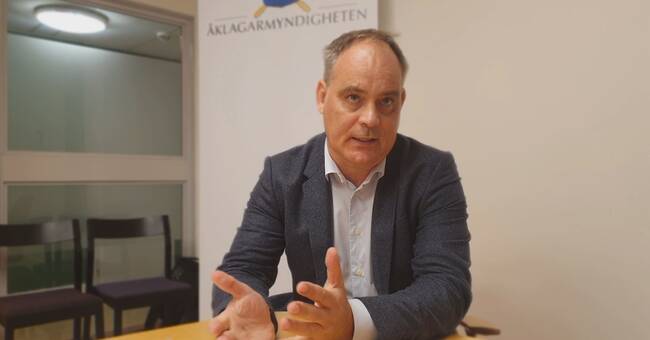The legal battle to stop gang crime in the country in general and Stockholm in particular has been in focus at the highest political instance.
Not infrequently, changed legislation has been mentioned as a possible measure.
Now, however, prosecutors Lars Ågren and Paulina Brandberg at the National Unit against International and Organized Crime want to test whether current legislation on human trafficking can be used when criminal networks recruit minors.
- This is one of the first cases that tries this particular issue and prosecution is brought in this way, says prosecutor Lars Ågren.
Secret surveillance
After a thorough reconnaissance work, the extensive preliminary investigation now shows how the criminal network in Vårberg took over and controlled the drug trade.
Through, among other things, secret telephone tapping and video material, prosecutors say that they mapped the gang's hierarchical structure and how young people at the bottom of the hierarchy were used to sell drugs.
- We assess that there are four levels in this organization.
NN, is the leader figure we have accused of human trafficking, he has controlled this.
Then there are other people under him who have also had leading roles.
Then there is a level closer to the street where people look over the stockpiles of drugs that have been in various basement rooms.
Finally, we have the street level of young boys under the age of 18 who have sold drugs.
According to prosecutors, the network will control a large part of the drug trade in Vårberg and after the twelve suspects were arrested, a "significant difference" has been noticed for the residents of Vårberg.

